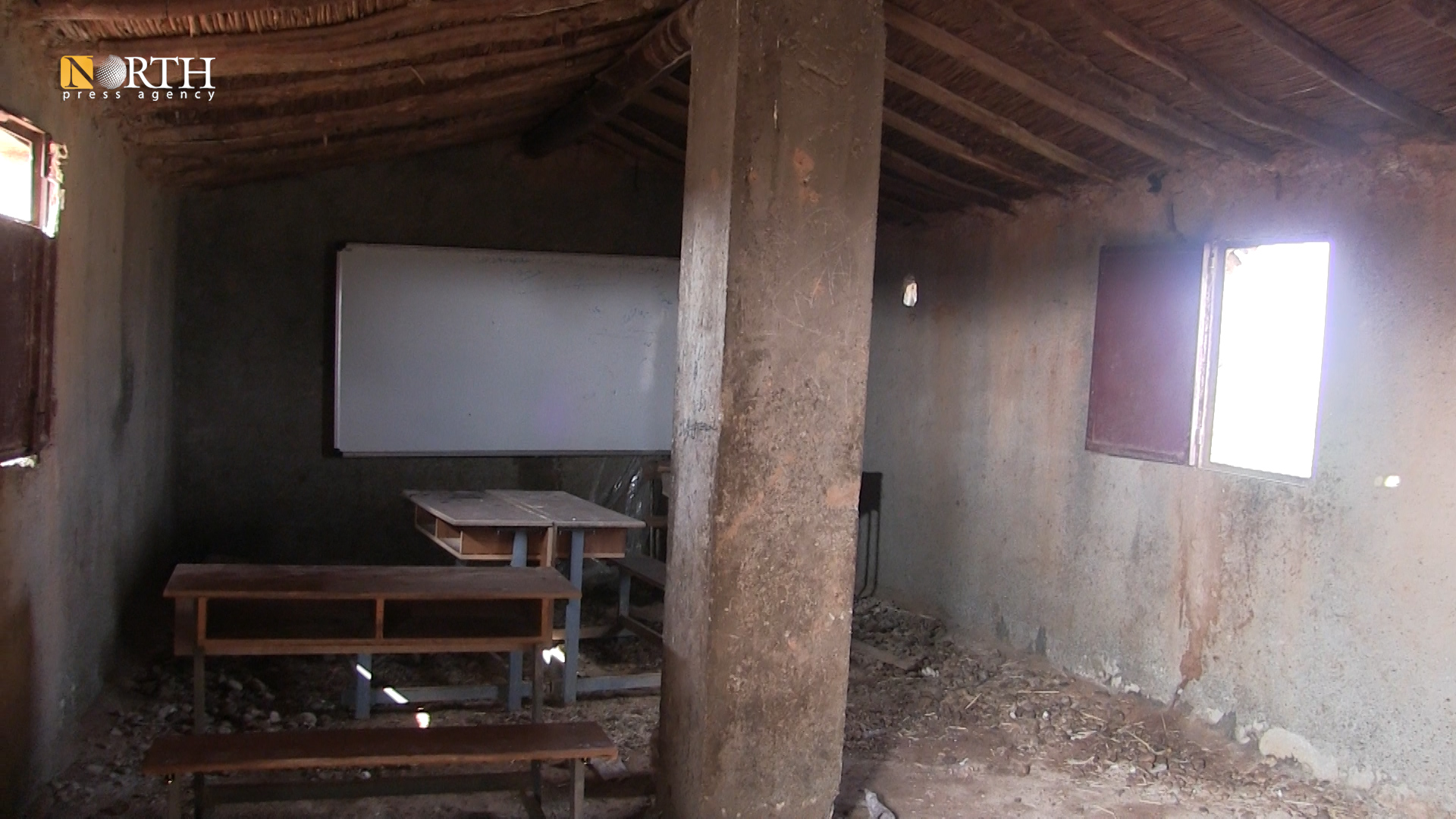RAQQA, Syria (North Press) – More than 120 students have been deprived of their right to an education for the second successive year because there is no school in their village of Hewayjat Mahran, north of Raqqa, northern Syria.
Since 2002 students were taught in three prefabricated rooms, but these rooms were removed and transferred to an institution of Civil Administration of Raqqa in May 2018.
Since then, most of the students abandoned their education because they faced difficulty in heading to school, since the nearest school is about five kilometers from the village; several families moved to the city in order to guarantee their children’s education.
Hewayjat Mahran resident Abdulkarim al-Aziz said, “Now, there is no school left; some students have moved to Raqqa and others to Damascus.”
“My son rides his bike for about five kilometers to school, while sometimes he does not go to school due to the bad weather conditions,” he added.
Twenty years ago, Abdulkarim’s father donated a piece of land, which included prefabricated rooms, to the Education Department in order to build a school, according to al-Aziz.
After removing the rooms, Hazima’s Educational Office constructed a mud room (near the old school for teaching students; however, families refused to send their children, fearing the collapse of the room on the children.
More than 40 schools are affiliated with Hazima Educational Office, including more than 11,000 students and 417 teachers, according to the administration of the Educational Office.
Meanwhile, students, who head to Mazra’t al-Jala’ School face many difficulties and sometimes do not go to school, especially in winter, due to bad weather conditions.
Ali al-Modaifi’, a farmer from Hewayjat Mahran, said that his four children abandoned their education after the school closed and that he did not have a vehicle to transfer them on daily basis. “I cannot let them go alone,” he added.
He pointed out that most of the children of the village were working in agriculture and sheep grazing.
“There is a dense population, but there are no schools in Hazima’s northern countryside, according to the Hazima Educational Office supervisor Ahmed al-Hussein.
Al-Hussein pointed out that they called on the authorities in charge, including the Civil Council of Raqqa, to build a new school in Hewayjat Mahran or to return the prefabricated classrooms, since residents of the village have donated a piece of land for this matter, ” but our demands were not met.”
Meanwhile, the Civil Council of Raqqa’s Educational Committee co-chair Khalaf al-Matar pointed out that they handed a study for building a classroom in the village over to the Education Board in North and East Syria.
He said that the study “has been approved and it will be implemented after setting a budget for it,” though he did not mention any timeframe for the project’s start or completion.

